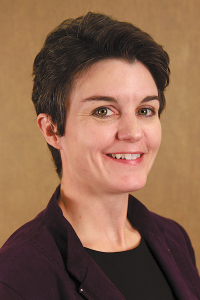November 4, 2015
Hearing Aids: Cost Factors vs. Value

Dr. Alison Soto
Audiologist
Parker Audiology, P.C.
Yikes! The cost of hearing aids continues to go up! The
current cost for each hearing aid is $1000-$4000 in the Quad Cities. How could this be? Especially when I can get something from a magazine for $400!! Dr. Parker, “What Gives?!”
I frequently get asked why someone should choose seeing an Audiologist instead of just getting mail-order hearing aids. Many people look at the bottom line ($$) and make decisions from there. More sophisticated shoppers realize the difference between the value and the investment. This holiday season, take notice of what you are missing out and observe how much better you could be doing if you had exceptional care and professional judgement. Did you get your value from your current devices? Would it make sense to get a second opinion?
1. Cheap hearing devices are…. cheap! The look and feel of the casing, the battery door, the piece of plastic that sits into the ear canal is not of high quality. There is some danger to having an incorrectly sized dome get stuck in your ear canal as well. From a sound quality stand point, if you were to examine the sounds that these devices amplify, often it is louder, but is not set up to match the individual’s hearing loss. The individual’s loudness preferences are also not taken into account for loud/soft sounds. There is even a danger that some sounds could cause more hearing loss if the settings are set at unsafe levels. Additionally, background noise is not removed at all, and many describe sounds to be like a cheap transistor radio. Care and maintenance is written in a little book and is poorly explained. The pictures are not often very helpful. This is evidenced by how often these hearing aids are hanging out of people’s ears at the grocery stores. Also, when it breaks or if you have a question, where do you go for help? There are no local places that can serve you because no one has parts or the programming capabilities. If you are lucky, you may have kept the original address or phone number so you can send your device back to the factory, and hopefully receive it back in a couple of weeks. But worst of all, after 2-3 months of trying to hear and finally giving up, it would be a waste of $400 which could have been spent on something that had more value to your needs.
2.) Having a local Audiologist is a good start towards better
hearing. Part of what you pay for is the service that you receive. It is important to know how to properly insert, remove, change the battery (yes there are instructions for that too!), and clean the device. But what about knowing what to expect, what kind of adjustments may be needed over the next 3 weeks, 3 months, 3 years and the rest of the life of the devices? In my professional opinion, adjusting hearing aids are like adjusting your training for a marathon. It is a good idea to start easy in the beginning and start turning up the sound/exercise over time. A customized program is needed for everyone.
3) Technology really does matter! Lower cost hearing devices come with fewer options, fewer adjustments for the audiologist to address complaints, and less ability to process the signal in background noise. Still, if cost factors are really an issue, it is good to know that a less expensive device only costs a little more than the $400 you were originally going to throw away. A more basic device is still much better than what mail order devices could offer.
4) Finding the right professional is a personal decision; our office has staff Audiologists. We offer everyone a 75 day trial period to ensure that a customized process has successfully been started, and that your investment is a good decision. With exercises on learning how to hear in noise, speech exercise and communication strategies discussed and practiced by spouses, we strive to help all aspects of hearing—not just sell a piece of expensive plastic. Additionally, verification is obtained to ensure the settings are correct for each individual’s loss. We protect that investment with a loss/repair warranty. Our audiologists adjust settings complimentary during the warranty period. We also work hard to keep your investment in top working order for its life. While the average life of a hearing aid is about 5 years, it is not unusual for our patients to have 6-8+ years for some devices.
Our patients are very important to us. We strive to make sure that your expectations are realistic, your technology is correct for your lifestyle, and your family and physician are involved during this process–especially since your hearing loss affects everybody around you! We look forward to serving you! Call us today for an appointment!
Dr. Molly Parker has been practicing Audiology in the Quad Cities for 17 years. She is the owner of Parker Audiology, PC. Call Dr. Alison Soto or Dr. Molly Parker today for an appointment at (563) 265-8003.
Filed Under: Health & Wellness
Trackback URL: https://www.50pluslife.com/2015/11/04/hearing-aids-cost-factors-vs-value/trackback/



